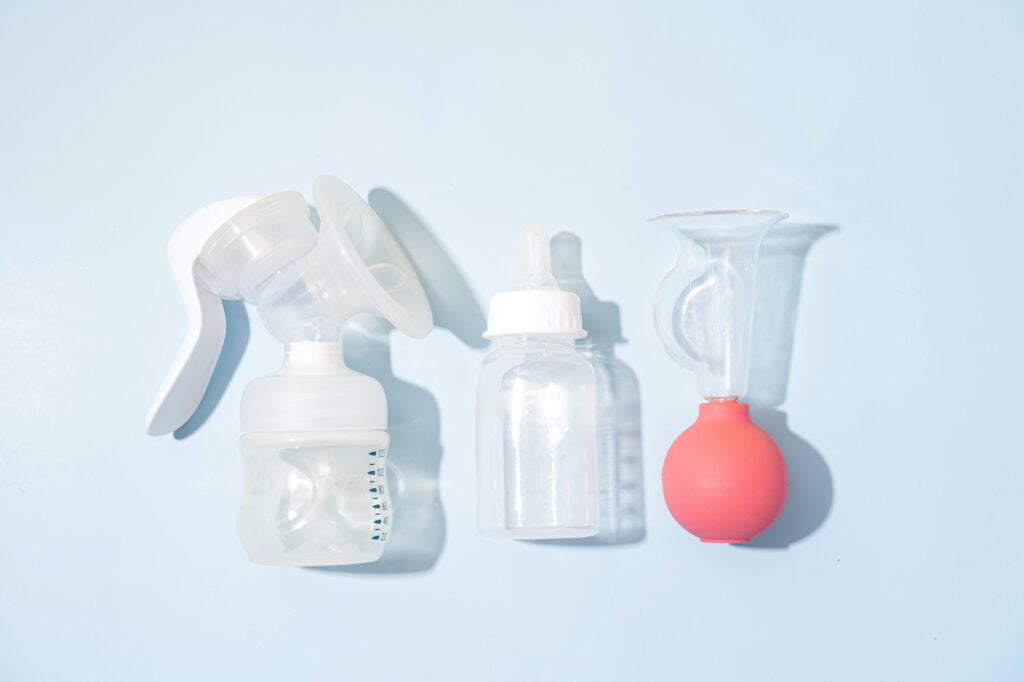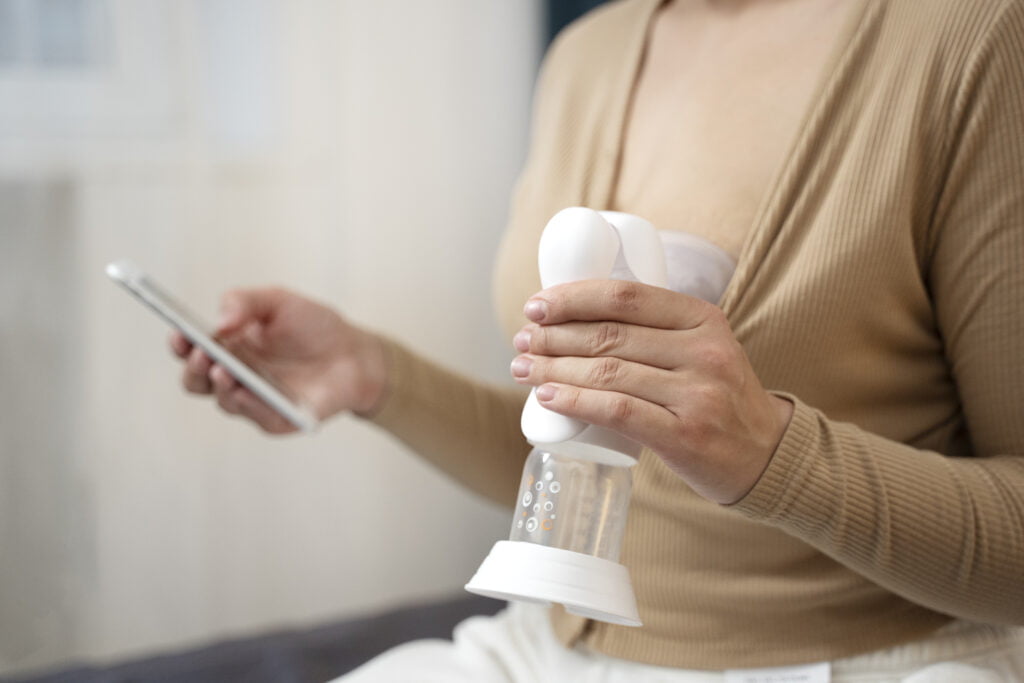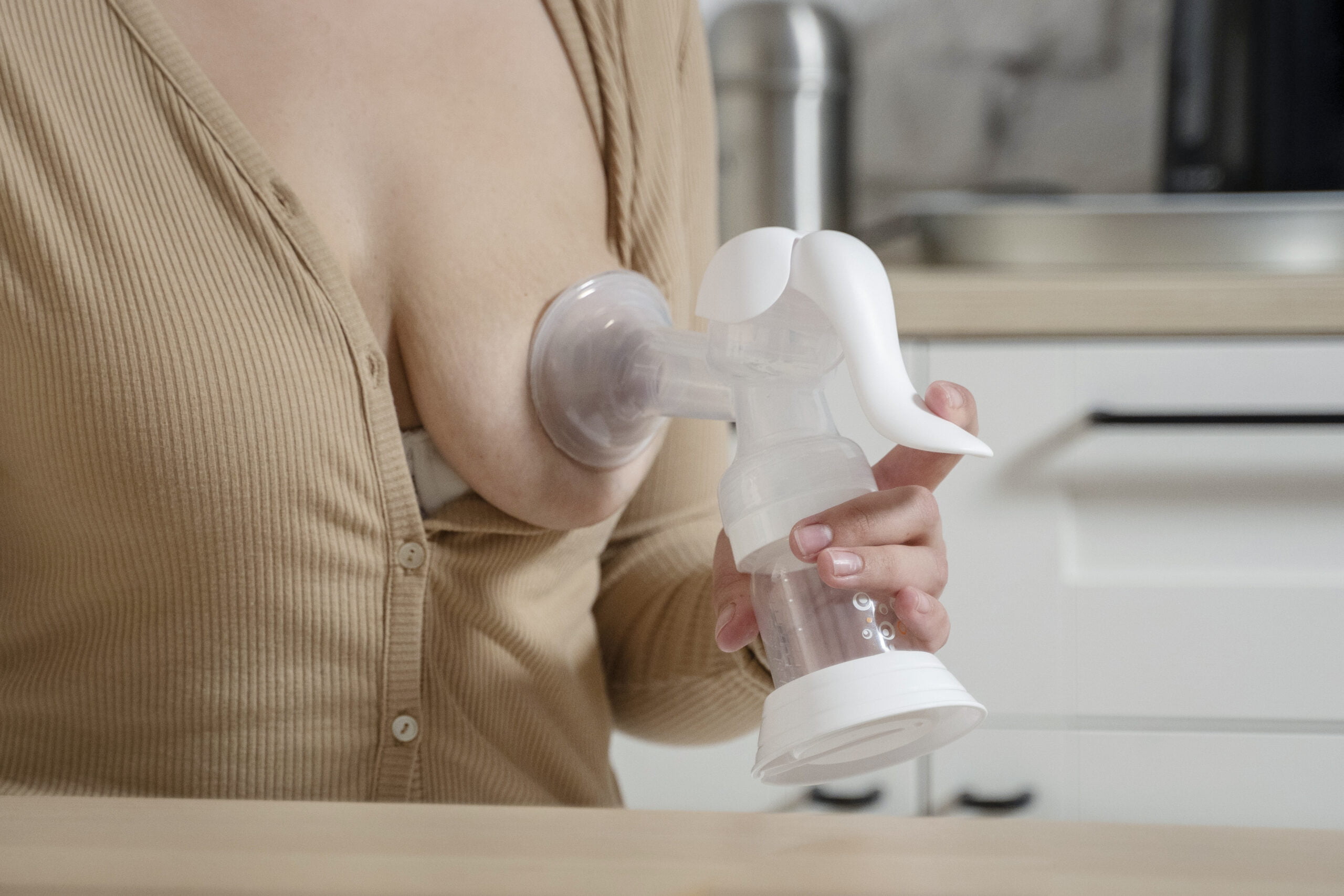Table of Contents
ToggleAlright, buckle up, folks! We’re about to venture into a topic that’s quite literally, close to the chest for all expecting mothers. You know, it’s one of those things you’ve probably caught wind of and might be toying around with the idea yourself. It’s all about the ‘Pros and Cons of Pumping Before Birth.’ Oh, you didn’t know that was a thing? Well, it sure is! And in this piece, we’re about to roll up our sleeves and dig into all the juicy details. Buckle up, folks!
We’re not just talking about your typical ‘mommy blogger’ content here. No, sirree! We’re bringing you hard facts, seasoned with a generous sprinkle of real-life experiences. Whether you’re an expectant momma filled with anticipation, a partner scratching their head, or just a curious soul fascinated by the kaleidoscope that is motherhood, consider this article your all-access pass to understanding the ins and outs. Buckle up, y’all!
Breast pumping before birth, or antenatal expression, is a topic shrouded in a whirlwind of questions, controversies, and some uncertainties. But fret not, dear reader! We’re here to unravel it all. This article will dissect the benefits of pumping before birth, as well as raise the potential red flags, and discuss whether it’s advisable to start pumping before the baby is born. We’re gonna be chit-chatting about the ups and downs of pumping to kickstart labor, tricks to ramp up the ol’ milk factory before the little one makes an appearance, and exactly how much of that liquid gold, colostrum, you can pump before labor. Buckle up, we’re diving in!
By the time we’re through with this little chat, you’ll be holding the reins, ready to make a call that’s tailor-made for you. So, let’s quit the chitchat and get the ball rolling on the ABCs of breast pumping. Strap in, friend – welcome to the wild, wonderful whirlwind that is parenthood!
Understanding Breast Pumping

So, what’s the scoop on breast pumping? In the simplest of terms, breast pumping is the act of expressing milk from the breasts using a manual or electric device known as a breast pump. This can be done for a variety of reasons, and believe it or not, even before the little one makes their grand arrival.
Why would anyone choose to pump before birth, you ask? Well, the why’s are as varied as the mamas who choose to give it a whirl. For some, the goal is to stimulate milk production or increase their milk supply in anticipation of their baby’s needs. Others might opt to pump before birth to induce labor (although this method isn’t universally recommended and should only be considered under the guidance of a healthcare professional).
Then there are women who plan to return to work shortly after giving birth and want to get a head start on their stash of breast milk. For others, it’s a way to get familiar with the pumping process and equipment ahead of time, to avoid feeling overwhelmed once the baby is here.
We’d be remiss if we didn’t address that pumping before birth can be an emotionally charged decision. It’s important to remember that the choice to pump before birth (or not to) is incredibly personal and varies widely among women. Now here’s the scoop – there ain’t no cookie-cutter way to go about this. Each gal’s ride through pregnancy and motherhood is as unique as a snowflake, and what jives for one might not be the cat’s meow for another.
And guess what, that’s A-OK! Whether you’re gung ho about this or just kicking the tires, we’re here for ya. Our aim is to give you the lowdown so you can make the best call for you and your little peanut. Now, armed with this understanding, let’s mosey on over to the potential perks of pumping before your little one arrives. Prepare to have your mind blown.
The Benefits of Pumping Before Birth

Alrighty, so we’ve unpacked what breast pumping is all about and why some ladies might opt to get a head start on it before their bundle of joy arrives. Now, let’s dive into the benefits this practice can offer. Keep in mind, though, that each mom-to-be’s journey is as unique as a snowflake, and what’s a slam dunk for one might be a swing and a miss for another.
Now, let’s dive headfirst into the reasons why pumping before birth might just be a game-changer.
Increasing Milk Supply
First and foremost, pumping before birth can help increase the milk supply. Imagine being able to welcome your little bundle of joy with a pantry stocked full of their favorite food. That’s exactly what pumping before birth can potentially help you achieve. The logic is pretty straightforward – the more you express, the more milk your body will produce in response. It’s all about supply and demand, baby!
The early milk, known as colostrum, is incredibly nutrient-dense and packed with antibodies that help protect your newborn. By pumping before birth, you can ensure your baby gets this ‘liquid gold,’ even if breastfeeding doesn’t go as planned initially. Plus, it offers a kind of insurance policy for mamas who might be biting their nails over whether they’ll be able to produce enough milk when their little one finally makes their grand entrance.
Familiarizing with the Pumping Process
Let’s be real, breastfeeding and pumping are kinda like learning to ride a bike—it’s not something you just pick up overnight. For a lot of new mamas, it can feel like you’re climbing Mount Everest, especially when you’re attempting to master it on nothing but a few winks of sleep.
This is where the second perk of pumping before the baby arrives kicks in getting a head start with the whole pumping rigmarole. Imagine it’s like a test drive before the big race day. You get plenty of time to figure out your pump—how it works, how to put it together and take it apart, and the whole clean-up act. Plus, you get the chance to mess around with different pump settings to find what feels right for you. It’s all about turning those “umms” and “uh-ohs” into “aha” moments before your little one makes their grand entrance.
Remember, feeling confident in your ability to pump can take a huge load off your mind in those early postpartum days. Knowing you’ve got the pumping thing down pat allows you to focus more on your baby and less on the logistics of breast milk extraction.
Now, we’ve been chatting about some pretty cool perks of pumping before birth, but life ain’t all apple pie and baseball, you know? Like pretty much everything else under the sun, there can be some bumpy roads along the way too. But, hey, we’ll park that discussion for just a hot second. For now, let’s shimmy on over and check out the other side of the record.
Potential Downsides of Pumping Before Birth

Like with any choice you make during the wild ride of pregnancy and motherhood, it’s crucial to give both the good and the not-so-good a hard look. So, we’ve yapped about the bright side of pumping before birth, but it’s only right to flip this pancake and poke around the potential bummers too. Remember, knowledge is your secret weapon, and being clued-in means making the A+ choices for you and your little munchkin.
Possible Induction of Labor
Let’s cut straight to the chase – one potential risk of pumping before birth is the possible induction of labor. Now, I get it, this could sound like sweet, sweet tunes to a wiped-out mama-to-be who’s all set to meet her little bundle of joy. But hold onto your hat, girl!
Breast stimulation can coax out oxytocin, a hormone known for its role in starting contractions. It’s not usually a game-changer early on in the pregnancy, but when you’re inching closer to that due date, it could be just the nudge your body needs to jumpstart labor. Some might call this a bonus feature, right? But, it’s real important to chew over this aspect and give it a good chat with your healthcare provider, particularly if you’re thinking of pumping before full term or if your pregnancy’s been flagged as high-risk.
May Interfere with Immediate Breastfeeding
The second potential downside is that pumping before birth may interfere with immediate breastfeeding post-delivery. You might be wondering, “How so?” Here’s the deal – if you pump and store a significant amount of colostrum (the super nutrient-dense early milk) before birth, there might be less available immediately after your baby is born.
This doesn’t mean you’ll run dry, just that the schedule might get a tad out of whack. Your milk takes a beat to switch gears from colostrum to the full-blown, mature stuff. While it’s doing its thing, if your stash of colostrum gets used up, it might throw a spanner in the works for those first few feeding frenzies.
To wrap it up, like most choices in the realm of pregnancy and parenting, pumping before birth is a personal decision that should be made after considering all aspects. There are potential benefits and drawbacks. The trick here is to get hip to these factors and have a good old chat with your doc about them. That way, you can make a choice that hits the spot for your specific situation.
With the potential downsides considered, let’s move on to another frequently asked question – when should you start pumping before the baby is born? Stick around as we uncover this next.
When to Start Pumping Before the Baby Is Born
Now that we’ve traversed the pros and cons of pumping before birth, a question naturally pops up – when’s the best time to start?
Choosing the right moment to jumpstart that pre-baby pumping is pretty darn important. It’s not just about your own vibe, but also your health game and what your doc or midwife has to say.
Most healthcare professionals recommend waiting until around the 37th week of pregnancy before starting to pump. Why? By this time, your pregnancy is considered full-term, and the risk associated with possibly inducing labor is significantly reduced.
Now, keep in mind this is just a ballpark idea, and every pregnancy is as one-of-a-kind as the mama carrying it. So, this call needs to be as custom-fit as your maternity jeans.
Maybe you’re expecting twins or triplets, and your healthcare provider suggests starting a bit earlier. Or perhaps you’ve had previous breastfeeding challenges, and your lactation consultant recommends getting a jump-start on pumping to stash away some of that liquid gold known as colostrum.
No matter what your particular circumstance might be, the golden rule is don’t try to wing it solo. This is where tapping into the wisdom of healthcare pros pays off. Having a heart-to-heart with your doc, midwife, or breastfeeding guru can help make sure you’re locking in a decision that’s a win-win for both you and your baby.
Getting the green light from your healthcare provider and understanding the reasoning behind their recommendation can give you peace of mind. After all, being pregnant and preparing for a new baby is a roller coaster of emotions and to-dos. Anything that helps make the ride smoother is a win!
But hey, we know you’ve probably got a ton more questions swirling around in your mind about pumping before birth. Alright, let’s shift gears and tackle some of the big questions folks often have about this subject. Buckle up and let’s dive in. Buckle up, folks! We’re about to dive deeper into the world of pre-birth pumping.
Commonly Asked Questions About Pumping Before Birth
Alright, so you’ve brushed up on the ins and outs, and you’ve even got your calendar all decked out with those magic dates. But a few pressing questions are still bouncing around in your noggin. No worries! We’re gonna tackle some of the most commonly asked questions about pumping before birth.
How much colostrum can you pump before labor?
You might be taken aback to find out that the volumes can be pretty teeny-tiny, especially in the beginning. We’re talking about teaspoons, not ounces. The key thing to remember here is that colostrum is highly concentrated and packed full of the good stuff your baby needs in those first few days.
Can pumping before birth induce labor?
Yes, it can. Nipple stimulation from pumping can trigger the release of oxytocin, a hormone that causes contractions. That’s why it’s mega important to get a green light from your healthcare provider before you start the pumpin’ party, especially if you’re not quite at the finish line yet.
Is it bad to start pumping before the baby is born?
Well, it’s not exactly ‘bad’ in the traditional sense of the word. Remember, the choice to pump before birth is a personal one and should be guided by your unique situation and professional advice. However, keep in mind that early pumping could induce labor, particularly if done before the 37th week, so it’s critical to get your healthcare provider’s thumbs-up first.
Navigating the landscape of pre-birth pumping can be a bit like steering a ship through choppy waters. But with the straight scoop and some expert guidance, you’ll be prepped and primed to make the best call for you and your soon-to-pop bundle of joy.
Alrighty then, we’ve spilled the beans on pre-birth pumping, and now it’s time to tie this all up in a neat little bow. So, let’s push forward and give this blog a mic drop moment.
The End Line of Pros and Cons of Pumping Before Birth

Well folks, we’ve navigated the sometimes choppy waters of pumping before birth together. From understanding the basics of breast pumping, to weighing up the pros and cons, and answering some burning questions, it’s been quite the journey.
Pumping before birth comes with a blend of potential perks and pitfalls. On the upside, it can help kickstart your milk supply, offer a sneak peek into what breastfeeding might feel like, and arm you with a stash of liquid gold for your newborn. On the downside, it may bring on labor prematurely or interfere with initial breastfeeding.
Remember, folks, this ain’t a cookie-cutter situation. Pregnancy and motherhood are as one-of-a-kind as they come, and choosing to pump before the baby makes its grand entrance is no different. Just know that what’s a slam dunk for one mom might be a whole other ball game for another, and you know what? That’s perfectly alright.
The golden rule? Consult with your healthcare provider. Their smarts and deep dive into your unique situation are worth their weight in gold when it comes to steering your decision-making ship. And remember, it’s A-OK to ask questions and seek advice. After all, ain’t that age-old saying true? It takes a whole dang neighborhood to raise a kiddo, right?
Well, we’re about to wrap up this deep-dive on the ups and downs of pre-birth pumping. But hold up, we wanna hear from you. Got any nuggets of wisdom or tales from your own pumping adventure? Don’t be shy – leave a comment and let’s keep this conversation rolling. And hey, if you found this piece helpful, why not pass it on? The more we share, the more soon-to-be mamas we empower with the info they need to make the right call.
Just remember, you ain’t just any ol’ expectant mama—you’re basically superwoman. So keep on doing your thing, and stay fabulous!
Looking for more insights on the rollercoaster ride of parenthood? Check out our articles on how to stop worrying about your grown child. Trust me, it’s a game-changer!









